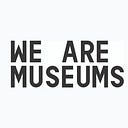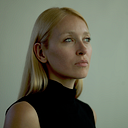Democratize, Decolonize, Participate — An Approach to Futures Literacy | Meetup Summary (December 14, 2020)
Organised by We Are Museums within the programme ‘Museums Facing Extinction’, the community meetup ‘Democratize, Decolonize, Participate—An Approach to Futures Literacy’ took place on December 14, 2020.
Through presentations and discussions, this meetup explored several opportunities for public institutions to provide new meeting places, create online community platforms, and transform their members or audience into co-creating participants capable of challenging the inadequate imaginary of being a human in the 21st century and beyond.
To shed more light on the theme of the session, the community meet-up played host to two guests: Nicklas Larsen, Senior Advisor at the Copenhagen Institute for Future Studies (Denmark), and Katrine Pedersen, Head of Education and Mediation at the Arken Museum of Modern Art (Denmark).
How Museums can Facilitate Grown-up Participation in Future’s Thinking
To start with, Nicklas gave participants an opportunity to think briefly about what comes to mind when they think about the future. Post-COVID, uncertainty, and more innovation, among others, were among the responses from participants. Thereafter, the guest explained ‘Futures’ as a developing study or domain that has fast become a mainstream interest.
With the aid of an illustrated diagram, Nicklas spoke about alternative and likely futures. He also talked about the five waves of the future.
5 Waves of Futures
- Oral Tradition
- Early Reading Age
- Enlightenment and Extraction
- Systems and Cybernetics
- Complexity and emergence
Decolonising Futures
Nicklas revealed how the future had already been colonized. He gave instances such as images or videos we assimilate, which give us an idea of the supposed future; viewing the future through lenses dominated by Western ideas, cultures, and societies; and the total exclusion of women and marginalized groups in the creation of futures and ideas of futures.
Decolonisation Deconstructed (Features of Futures Decolonisation)
- Awareness of conscious and sub-conscious reproduction of dominant ideas about systems through intentional and constant questions
- Acknowledge mistakes made by a westernized view of the future.
- Widening the lens and changing the paradigm
- Challenge the dominant images of the future in order to foster new ideas
Diversifying Futures Through Worldviews
There is a need to challenge the dominant images of the future because unchallenged futures tend to perpetuate problems from the past. Futures can be diversified through worldviews by:
- Making compelling and competing images of different features of the future as they can make powers to respond
Nicklas went ahead to quote Pupul Bishit, Founder of The Decolonizing Futures Initiative: “If we want to build better futures, leaving no one behind, then it means that we are totally dedicated to accepting that futures for all cannot be imagined by a few! It is not just about inclusion; it is about recognizing where power is held because, at the end of the day, decolonizing futures means making room for marginalized worldviews and historically marginalized cultural identities in futures work.”.
Democratising Futures
Nicklas noted that democratizing futures is one sure means of practicing an all-inclusive worldview. Participatory futures can be obtained through a combination of futures studies and public engagement. These ideas can be used to foster agencies and galvanize public action that aspires for public futures.
Elements of Democratising Futures
- Shifting from ideology & fiction to social engagements
- Teaching these futures like we teach history
- Futures literacy: planning for optimization, Preparing for contingencies, and being open to emerging normals (the first two are called anticipation of our futures thinking)
- The Public Square Reimagined; welcoming individuals to challenge the dominant views of the future
Conclusively, Nicklas averred that it was high time uncertainty was regarded as a feature of our society and not as a bug. According to Albert Einstein “The world as we have created it is a process of our thinking; it cannot be changed without changing our thinking”.
A participant asked a question about how we can embrace uncertainty and decolonization pathways without painful frictions.
Responding to the question, Nicklas opined that providing a spot-on answer to the question would lead to more complexities. However, he noted that in terms of museums, we can assume they are political institutions or part of the political circle, and by displaying artefacts of history, they can provide people with an opportunity to think about their own ideas of the future.
Nicklas concluded his session by introducing the second guest, Katrine.
Katrine spoke extensively about the Arken Art and Tech Lab, just outside Copenhagen, as a museum and also as a community. She stressed the importance of having the Arken Lab in a space outside the museum. According to her, by placing colourful teddy bears in the space, it elicits conversations or dialogues between artists and people who come in to take a look. Katrine also discussed the use of technology by the Art-Lab to recognize blind spots, foster conversations, and promote future thinking.
“How can your museum facilitate broader participation in futures thinking”
Check out the recording of our session here:

